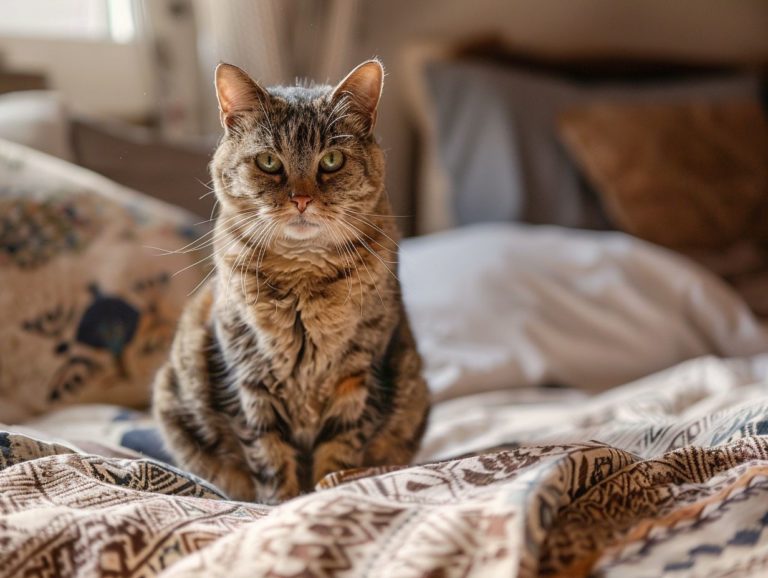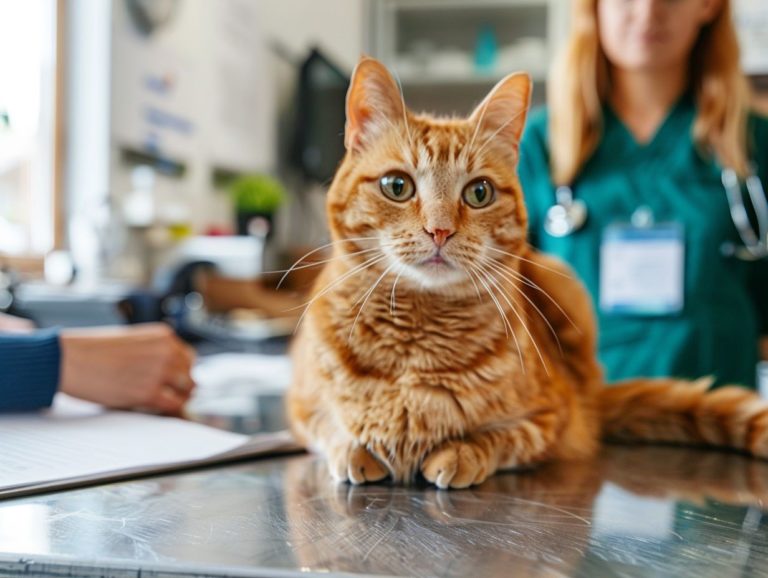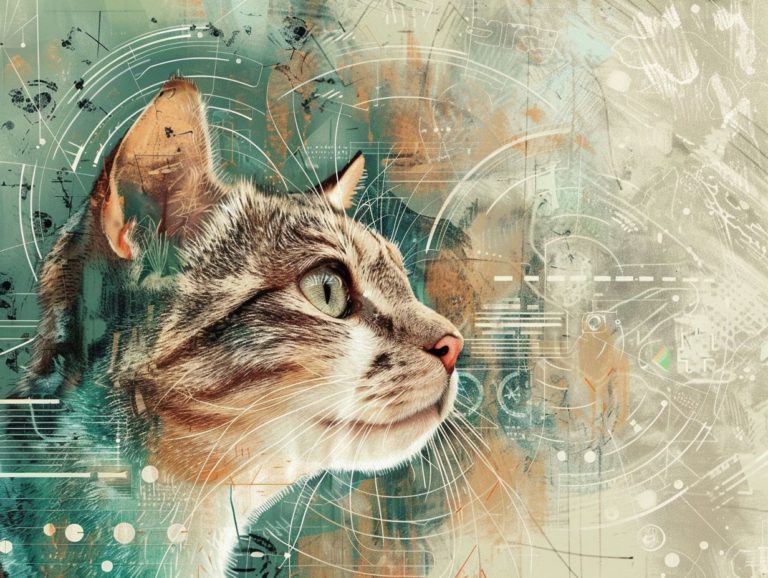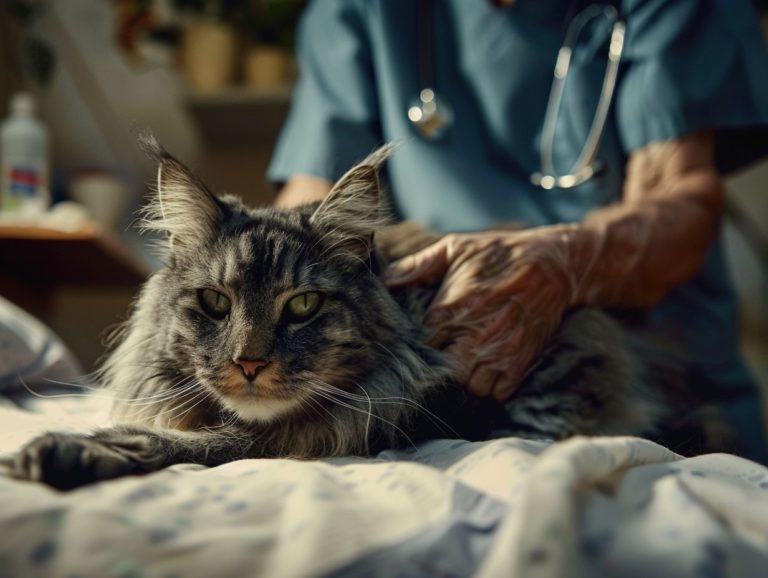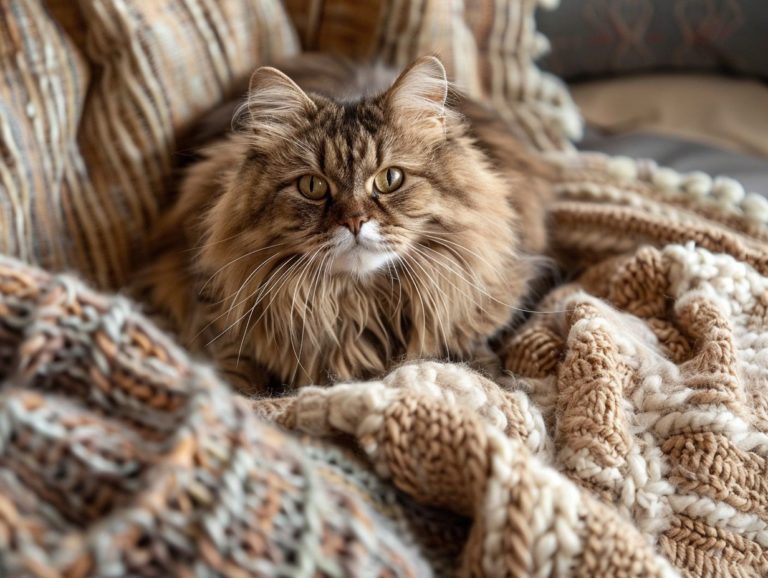Insurance Solutions For Senior Cats With Special Needs
This article provides information on caring for and accommodating senior cats, highlighting the importance of insurance, insurance coverage, and insurance benefits for senior cat care. It also discusses how to choose insurance for senior cats and explores alternative options for senior cat care insurance. The content will be beneficial for cat owners, breeders, as well as individuals working or volunteering at cat shelters or pet rescue agencies.
Topics covered include:
- Caring for and accommodating senior cats
- Common health issues in senior cats
- The necessity of insurance for senior cats
- Insurance coverage for prevalent senior cat health conditions
- The advantages of insurance for senior cats
- Cost savings and peace of mind through insurance for senior cats
- Selecting appropriate insurance for senior cats
- Alternative approaches to covering senior cat care
- Financial assistance programs for senior cat care
- Savings and budgeting strategies for senior cat care
- Insurance options for new cat owners of senior cats
This comprehensive guide is designed to assist anyone involved in the care of senior cats, including those new to senior cat care.
Key Takeaways:
Understanding Special Needs for Senior Cats
Understanding the specific needs of senior cats is essential for their care and overall well-being as they age. Senior cats have distinct care requirements tailored to address the challenges that come with aging. With age, cats become more vulnerable to various health issues like kidney disease and arthritis, significantly affecting their quality of life.
Kidney disease, a common ailment in senior cats, can result in dehydration and electrolyte imbalances. Arthritis, on the other hand, may cause joint pain and reduced mobility. Regular veterinary check-ups are crucial for early detection and effective treatment of such conditions.
Senior cats may benefit from softer food, increased grooming, and a comfortable living environment to ensure their happiness and health in their later years.
Common Health Issues in Senior Cats
Senior cats are susceptible to illnesses such as kidney disease, cancer, and diabetes. Understanding the common health issues of senior cats is crucial for providing appropriate care and timely diagnosis of these conditions.
As cats age, they may also be affected by ailments like arthritis, which can lead to joint stiffness and pain, impairing their mobility and overall well-being. Other prevalent conditions in senior cats include hyperthyroidism, dental disease, and cognitive dysfunction, manifesting symptoms like changes in appetite, weight loss, increased water consumption, and decreased activity.
Regular veterinary check-ups, a balanced diet tailored to meet a senior cat’s nutritional needs, and engaging activities that stimulate them mentally and physically can help prevent and effectively manage these health problems.
Special Care and Accommodations
Older cats may require special care and accommodations for certain conditions they may develop. For instance, arthritis necessitates different care and accommodations compared to a condition like Manx syndrome that can affect senior cats. As cats age, they commonly experience mobility issues and various conditions that can impact their quality of life. Issues like joint stiffness, muscle loss, and osteoarthritis can limit their movement capabilities. Providing easy access to their favorite spots, such as a cozy bed or elevated perch, can help alleviate any discomfort they may experience. Tailoring a nutrition plan to meet their specific dietary requirements, with guidance from a veterinary care provider, is crucial for their overall health, especially if they have conditions like diabetes.
The Importance of Insurance for Senior Cats
The importance of insurance for senior cats lies in the need for comprehensive coverage and financial protection to manage their increased healthcare needs. Cats are more likely to develop health problems as they age, underscoring the importance of having insurance.
Enrolling senior cats in appropriate insurance plans provides coverage for unexpected illnesses, injuries, and sometimes even routine veterinary check-ups. Insurance provider Fetch offers a wide range of customizable policy options tailored to meet the unique needs of older cats. Consider feline health plans for senior cats with special considerations.
Having insurance ensures that your cat’s medical expenses are covered, allowing you to focus on their health without the added financial strain.
Coverage for Common Health Issues
Pet insurance for senior cats offers coverage for common medical issues, illnesses, veterinary care, and advanced treatments, allowing older cats to receive necessary medical attention without concerns about costs.
Many pet insurance plans for senior cats also include wellness benefits, such as regular check-ups, vaccinations, dental care, and preventive treatments.
Providing coverage for routine veterinary care is crucial for meeting the unique healthcare needs of older cats and ensuring their overall well-being. Explore how insurance can help manage senior cat diabetes.
Companies like Trupanion offer comprehensive pet insurance plans for senior cats, giving cat owners peace of mind by guaranteeing financial support for providing optimal care for their aging pets.
Cost Savings and Peace of Mind
Pet insurance for senior cats offers cost savings and peace of mind to pet owners by reimbursing them for a percentage of veterinary expenses and wellness services. This financial assistance alleviates pet owners from bearing the entire financial burden of unexpected healthcare costs.
As cats age, they may require more frequent check-ups at the veterinarian for age-related health issues. With pet insurance like how senior cat insurance, pet owners can save a significant amount on these routine check-ups, vaccinations, and preventive care measures, ensuring their pets receive timely and necessary medical treatment without shouldering the full financial responsibility.
Pet insurance provides pet owners with the reassurance that they can afford the best possible care for their senior cats without worrying about the financial consequences.
Choosing the Right Insurance Plan
When selecting an insurance policy for senior cats, it is essential to consider factors such as age-specific coverage, breed-specific coverage, and the level of customizable coverage, in addition to the unique characteristics of the cat for which the policy is intended.
Age-specific coverage is crucial for senior cats as they may require frequent visits and specialized care for age-related health issues. Owners of Maine Coons, which are known for specific health concerns and larger size, should ensure that the insurance policy includes coverage for common illnesses and treatments associated with this breed. Customizable options, such as additional coverage for dental care and chronic illnesses, can offer a comprehensive level of coverage tailored to the specific needs of a senior cat.
Factors to Consider
When selecting the appropriate insurance plan for a senior cat, key considerations include coverage options, vet network size, policy flexibility, and insurance reimbursement process. Understanding these factors is crucial to ensure that the chosen insurance plan aligns with the cat’s healthcare needs.
To ensure comprehensive coverage, it is essential to confirm that the insurance policy encompasses a wide range of health issues commonly encountered by senior cats, including routine check-ups and serious conditions. A broad network of veterinarians within the insurance company’s network is vital to ensure easy access to quality care. For detailed information, explore the legal aspects of insuring your senior cat.
Policy flexibility is also significant as it allows for tailoring to the specific requirements of your cat, enabling adjustments to benefit amounts, deductibles, reimbursement percentages, and other essential factors. Opting for pet insurance companies like HealthyPaws with efficient and straightforward reimbursement processes can simplify managing the healthcare expenses of your senior cat.
Alternative Options for Covering Senior Cat Care
Apart from insurance, there are other financial methods available to ensure coverage for senior cat care, including financial assistance programs and savings strategies. These methods serve as additional sources of support for financing the healthcare needs of senior cats.
Financial assistance programs are specifically designed to aid pet owners facing unexpected financial challenges resulting from their pets’ illnesses or accidents. Establishing a savings plan for such emergencies can ensure that funds are accessible to cover treatment costs or facilitate emergency vet visits. To learn more, check out the Senior Cat Insurance Policies.
Nationwide, a leading pet insurance provider in the United States, offers a variety of resources and tools to assist pet owners in budgeting effectively for their senior cat’s care. By combining these financial approaches, pet owners can be better prepared for unforeseen circumstances and provide their senior cats with optimal healthcare.
Other Financial Assistance Programs
Financial assistance programs for senior cat care help cover expenses related to veterinary care, medications, and specialized treatments for age-related conditions for elderly cats. These programs are designed to provide support for the financial needs of pet owners and to ensure the best care is provided for their senior cats.
ManyPets is among the most well-known providers of such programs, offering assistance to cats over the age of 65 who meet specific income eligibility requirements. These requirements typically include proof of income for both the pet owner and the cat, verification of the cat’s age, and documentation of the cat’s medical condition. This may involve submitting tax returns, veterinary bills, and medical records for the eligible cat. For more information about senior cat insurance, visit here.
Once approved, the aid can range from discounted veterinary services to assistance with prescription medications and may even cover essential surgeries or therapies to address health concerns specific to senior cats.
Savings and Budgeting Strategies
Pet owners can effectively manage the costs of senior cat care by implementing savings and budgeting strategies. Planning ahead and saving for medical emergencies and routine healthcare needs ensures that owners can afford the necessary treatments for their senior cats. Taking preventive measures such as regular check-ups and vaccinations can help prevent costly health issues in the future. Specialized insurance policies designed for pet care coverage serve as a financial safety net for medical expenses related to senior cat care. Investing in high-quality nutrition and grooming products, especially for breeds like American Shorthairs known for their longevity, can contribute to maintaining their health throughout their senior years. Developing a comprehensive budget that factors in expenses for food, litter, and medical care aids in managing funds more efficiently.
Frequently Asked Questions
What are insurance solutions for senior cats with special needs?
Insurance solutions for senior cats with special needs are specialized insurance plans designed to cover the medical costs associated with caring for an older cat with health issues. These plans typically cover expenses such as veterinary visits, medication, and procedures specific to senior cats with special needs.
What types of health issues are covered by insurance solutions for senior cats with special needs?
Insurance solutions for senior cats with special needs typically cover a wide range of health issues including chronic conditions such as arthritis, diabetes, and kidney disease, as well as age-related issues like dental disease and vision problems. These plans also cover accidents, injuries, and illnesses that may occur in senior cats.
Are there age restrictions for enrolling a senior cat in an insurance plan?
Most insurance solutions for senior cats with special needs do not have any age restrictions, meaning a cat can be enrolled at any age. However, it is important to note that the premium may increase as the cat gets older and develops more health issues.
What kind of coverage can I expect from an insurance plan for my senior cat with special needs?
The coverage provided by insurance solutions for senior cats with special needs can vary depending on the specific plan. In general, these plans cover a percentage of eligible expenses, up to a certain limit. Some plans also offer additional coverage for routine care, prescription medications, and alternative therapies.
Do I need to provide any medical records or health history for my senior cat when enrolling in an insurance plan?
Yes, most insurance solutions for senior cats with special needs require some form of medical records or health history to be provided when enrolling. This helps the insurance company determine the appropriate coverage and premium for your cat based on their specific health needs.
What should I consider when choosing an insurance solution for my senior cat with special needs?
When choosing an insurance plan for your senior cat with special needs, it is important to consider the coverage provided, the premium cost, any waiting periods or restrictions, and the reputation of the insurance company. It is also a good idea to consult with your veterinarian for recommendations on the best plan for your cat’s specific needs.

